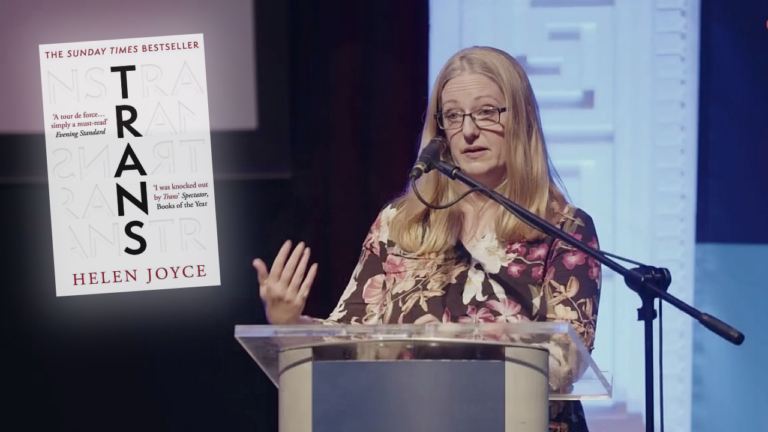Swansea University has been accused of “outrageous censorship” after library staff rushed to remove from display a book by a prominent gender critical writer following a single complaint from among the 20,415 students currently enrolled at the institution.
As reported in the Mail, a crack team of librarians scrambled to eliminate Helen Joyce’s book Trans: When Ideology Meets Reality from view following receipt of “an undisclosed allegation”. It is understood the book was disappeared within an hour of staff being notified of the complaint, and that there have been no reports of students suffering psychological trauma following inadvertent exposure to the book’s content – although campus welfare teams, mindful of a possible latency period, will no doubt remain vigilant.
Despite the book receiving critical acclaim and appearing on multiple bestselling book lists since its publication in 2021, trans activists and their allies have been incensed by the way it expounds the various threats that many feminist commentators believe the trans-rights movement poses to women’s hard-won sex-based rights.
When Dr Joyce was invited by academics at Cambridge University’s Gonville and Caius College to speak to the issues the book addresses in 2022, the Master of the College, Prof Pippa Rogerson, wrote an extraordinary email to all students, apologising for her presence on campus, and describing her views as “offensive, insulting and hateful to members of our community who live and work here”. Inevitably, more than a hundred trans rights protesters, some masked, then gathered outside the talk to chant “trans rights are human rights”, and bang a variegated assortment of pots and pans together so loudly that the speakers inside the auditorium could barely be heard.
The book was dragged back into controversy last year, when it emerged that several Labour council-run libraries removed the book from being ‘promoted’ in public displays.
Following receipt of a “formal grievance” from a single member of staff, Calderdale Council (metropolitan borough population: 206,600) removed a variety of books that were critical of gender ideology and transgender activism – including Helen Joyce’s Trans – from public view at the Council’s 12 public libraries and placed them out of sight in an off-limits storage space.
In a statement, Swansea University appeared unperturbed by the removal from view of Dr Joyce’s book, noting that the copy in question was part of a “temporary display” located in a prominent, well-trafficked area of the library that had been put together to mark LGBT+ History Month.
“It has always been available to staff and students on our library shelves and will remain so,” a spokesperson said, inadvertently raising further questions about how books are selected for inclusion within special ‘displays’ of this kind, and whether the criteria employed allow university libraries to maintain a position of neutrality on topics of passionate and polarised debate, or whether in some cases they may simply enable activist employees to project their own political views onto students.
Speaking to the Mail, Dr Joyce described Swansea’s censorship of her book as “outrageous” and said it wasn’t for staff to dictate what students should be allowed to see. “My book should be displayed alongside books promoting gender ideology, so readers can get the full picture and make up their own minds,” she added.
The incident was picked up by Welsh feminist group Merched Cymru, who have previously campaigned on the issue.
“We’ve had a couple of serious issues with gender activists staging threatening anti-women protests at events at the university, so we weren’t surprised when we heard a rumour that Trans had been removed from a library display,” a spokeswoman for the group said. “It’s just part of the pattern that we’ve come to expect from Swansea University.”
As Merched Cymru suggest, this isn’t the first time the institution has found itself at the centre of the debate over women’s sex-based rights and trans rights.
In 2022, it emerged that Swansea University Feminist Society had been “purged by trans activists” for “openly supporting women’s sex based-rights and sex-based spaces”, with its email accounts shut down and members forced to quit for their own safety.
The society had dozens of students attending its meetings – advertised as a “space away from men” – until campus activists accused it of ‘transphobia’ and demanded its leader be expelled after the society committed the twin heresies of publicly supporting Kathleen Stock and promoting Helen Joyce’s Trans.
One staff member who spoke to the Times on condition of anonymity said there was a feeling among staff that the closure of the society was yet another example of the university’s “capture” by Stonewall.
You can read the FSU’s recent research briefing on ‘soft censorship’ in public libraries by clicking here – it represents the first widespread snapshot of the effect censorious trans activists are having on our book borrowing choices.





